Digital marketing is a dynamic field that requires critical attention, and Search Engine Optimization (SEO) is the most crucial strategy for success in the digital world.
What is the point of performing SEO if you measure them infrequently? Every time will go in vain if you don’t monitor your efforts.
Whether you perform in-house SEO or outsourced SEO to other agencies, tracking performance to ensure that your efforts are getting the desired results is essential.
Key performance indicators (KPIs) come into play to measure SEO success.
KPIs are the best way to measure your campaign’s performance, identify areas for improvement, and improve your strategy for better results.
In this blog, we will learn about the essential KPIs that help measure the success of SEO and how collaborating with an SEO outsourcing company in India will provide you with expert reach for KPIs.
So, let’s go ahead and find out how these KPIs can impact your business.
How to Measure SEO Success: 11 Key KPIs to Know
1. Organic Traffic
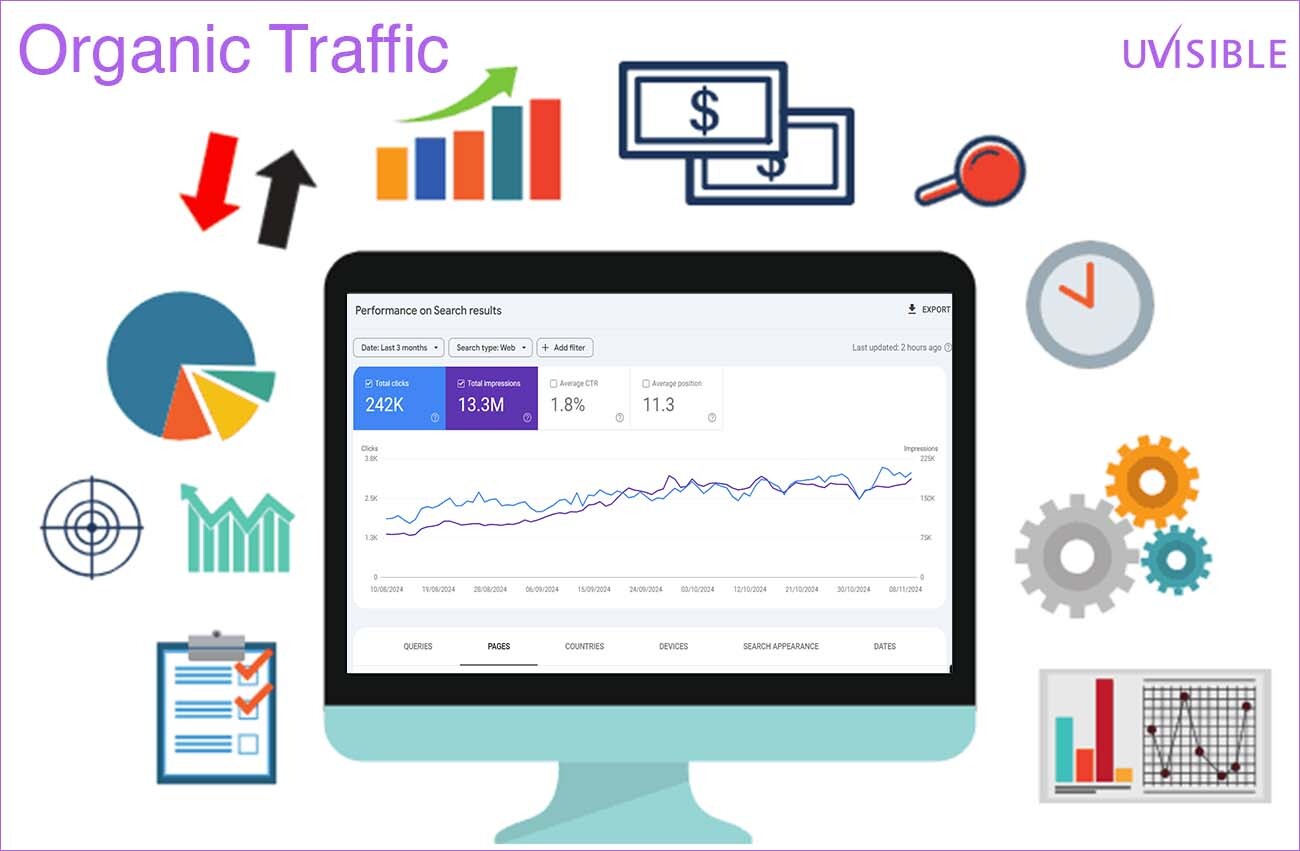
The primary and most important KPI to measure SEO success is organic traffic.
This indicates the number of visitors to your website who arrived through unpaid search results.
A steady growth in organic traffic shows the success of the SEO strategy.
Interesting Fact:
- Google processes around 99,000 searches per second, meaning around 8.5 billion daily searches.
- Around 53% of website traffic comes from organic search, which can help you rank top on Google’s search results page.
That shows the importance of optimizing your site to attract search engine users.
However, driving organic traffic on your website can be tricky; you can outsource SEO services to help you with that.
These professionals will help you customize SEO strategies and implement the best practices to boost your traffic.
2. Keyword Rankings

Keywords are another essential part of SEO; tracking them is the most important KPI.
The higher the website ranks for relevant keywords, the better traffic and visibility it gets.
However, ranking a few specific keywords can not always drive traffic. It is about consistent ranking for different related terms that connect with your brand, services, and products.
Statistics suggest that 75% of Google users never leave the first page of search results, making top keyword ranking an essential KPI.
Getting help from an experienced SEO agency can help your website find high-value keywords and optimize it for your website for better rankings.
Long-tail keywords are the best to drive more targeted traffic.
3. Bounce Rate
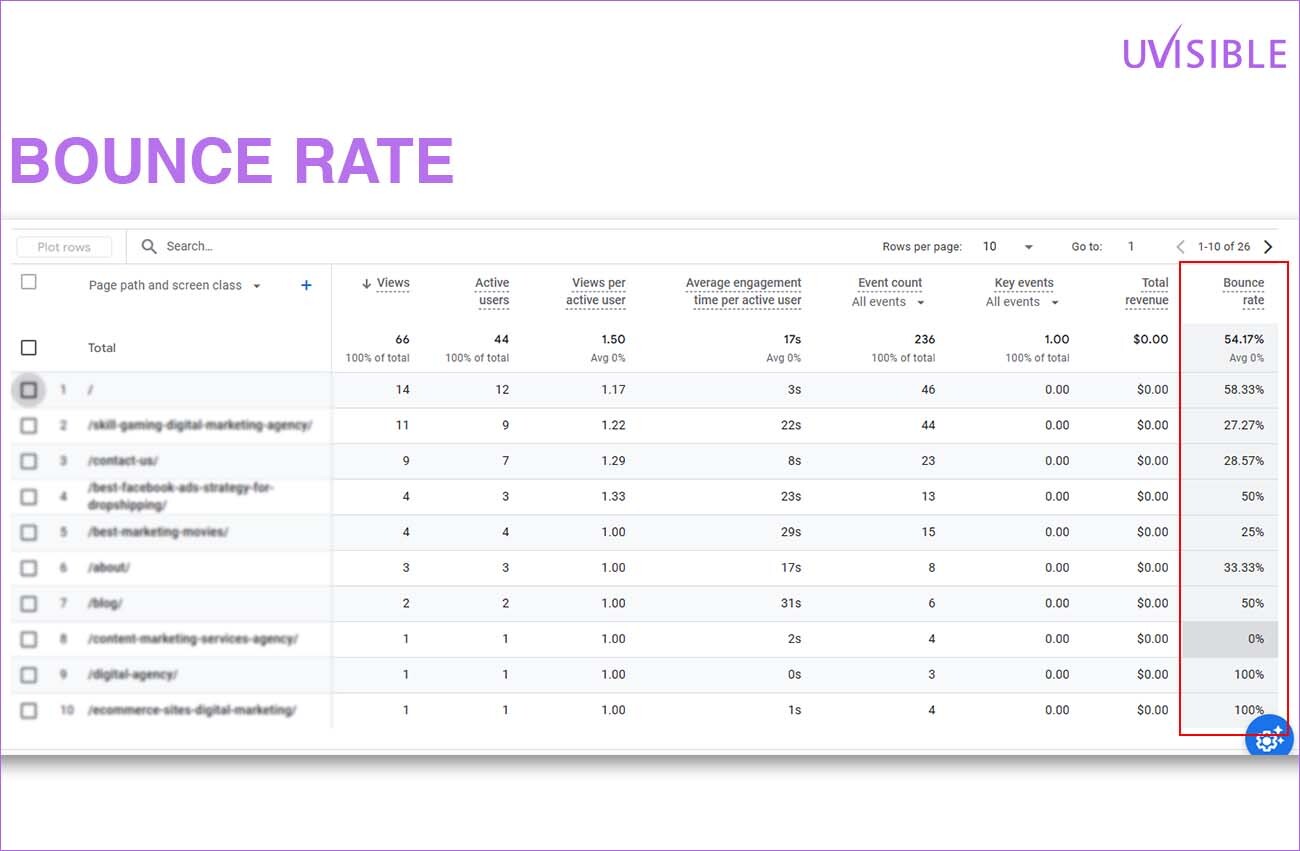
The bounce rate indicates the percentage of visitors that leave your website after scrolling through one page.
A high bounce rate suggests your website is not engaging or the user hasn’t found what they are looking for.
An effective SEO strategy can ensure that users visit your websites and stick around to explore your content.
Interesting Fact:
The average bounce rate for websites on search engines ranges between 41% and 55%. Reducing this number can increase your conversion rate.
If you outsource SEO services, you can get help to reduce bounce rates and optimize your website for better user experience and engaging content.
4. Impressions
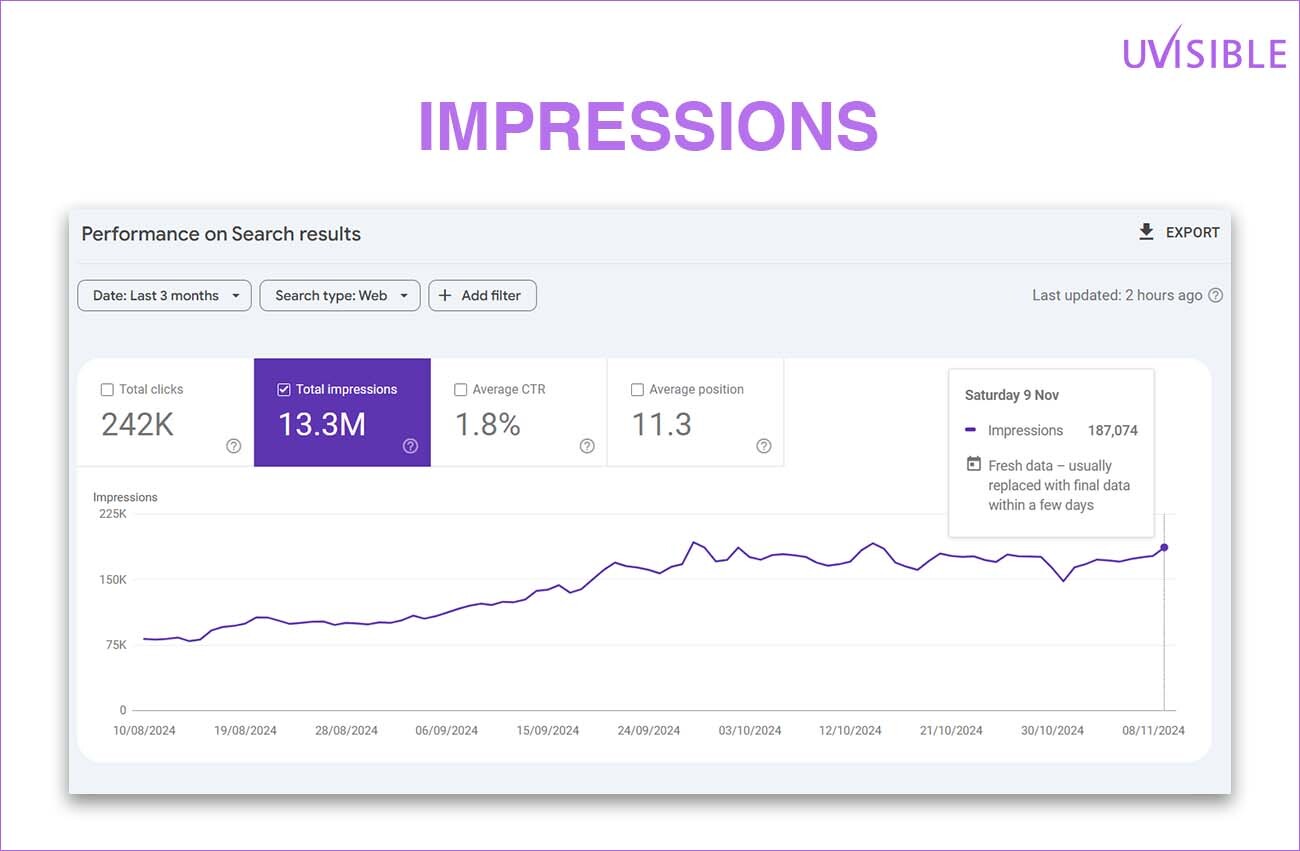
Impressions show how often your website has appeared on search results in a specific period.
Measuring impressions through Google Search Console will provide insight into your efforts.
For successful SEO campaigns, seeing how often your website has appeared on SERP is essential.
Google Analytics and Google Analytics 360 (GA360) provide a detailed report on the buyer journey under Attribution > Conversions > Top Conversion Paths.
5. Conversion Rate
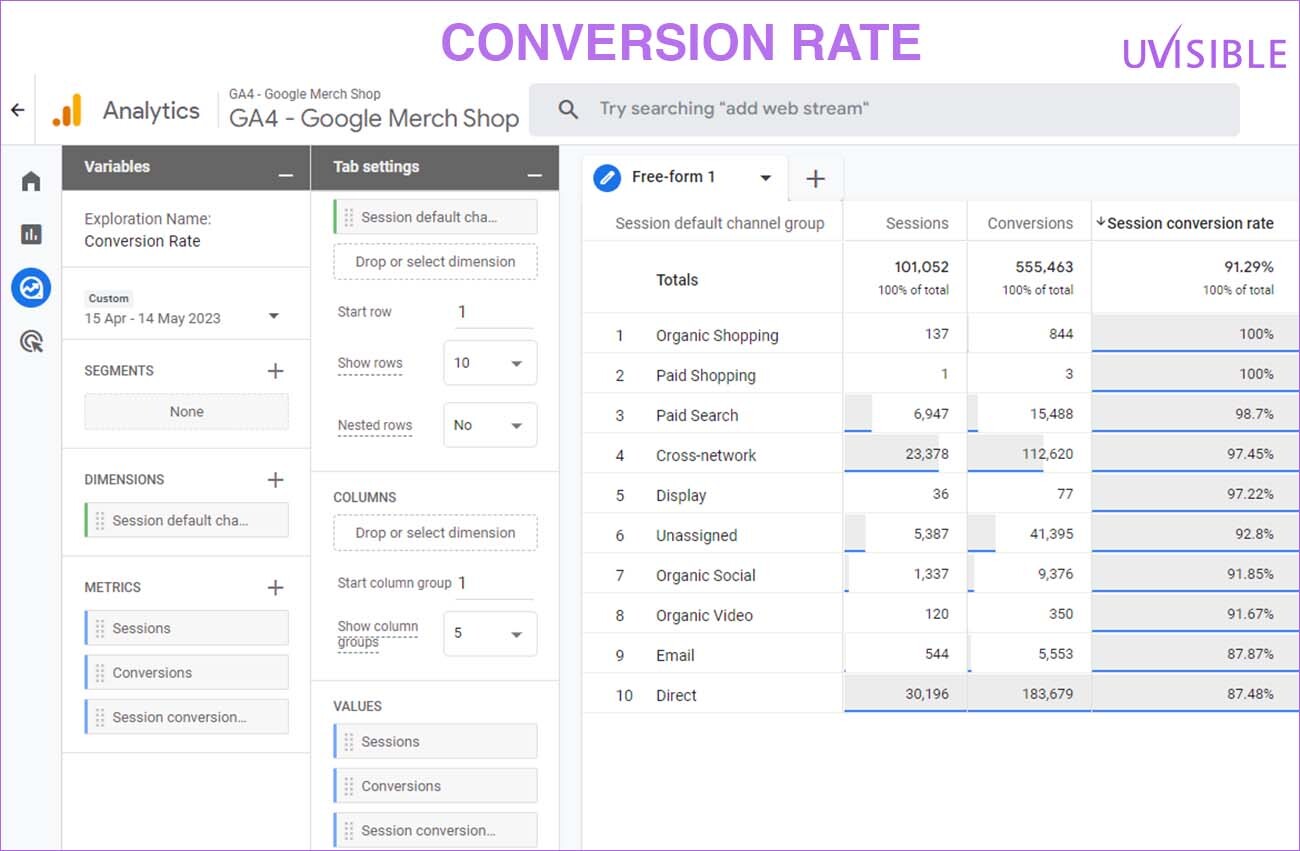
The ultimate goal of performing SEO is to drive conversions and revenue through sales, downloads, sign-ups, or other actions.
The conversion rate shows the percentage of users who completed the specific goal after visiting the website.
Conversion rate is an essential KPI as driving traffic isn’t just the goal; conversion is.
Interesting Fact:
The average conversion rate across different industries lies around 2.35%, but for the top 25% of companies, it is more than 5.31%.
If you want to increase your conversion rates, get help from an SEO service agency. They can optimize landing pages, improve site speed, and implement strong calls to action (CTAs) for you.
6. Backlinks
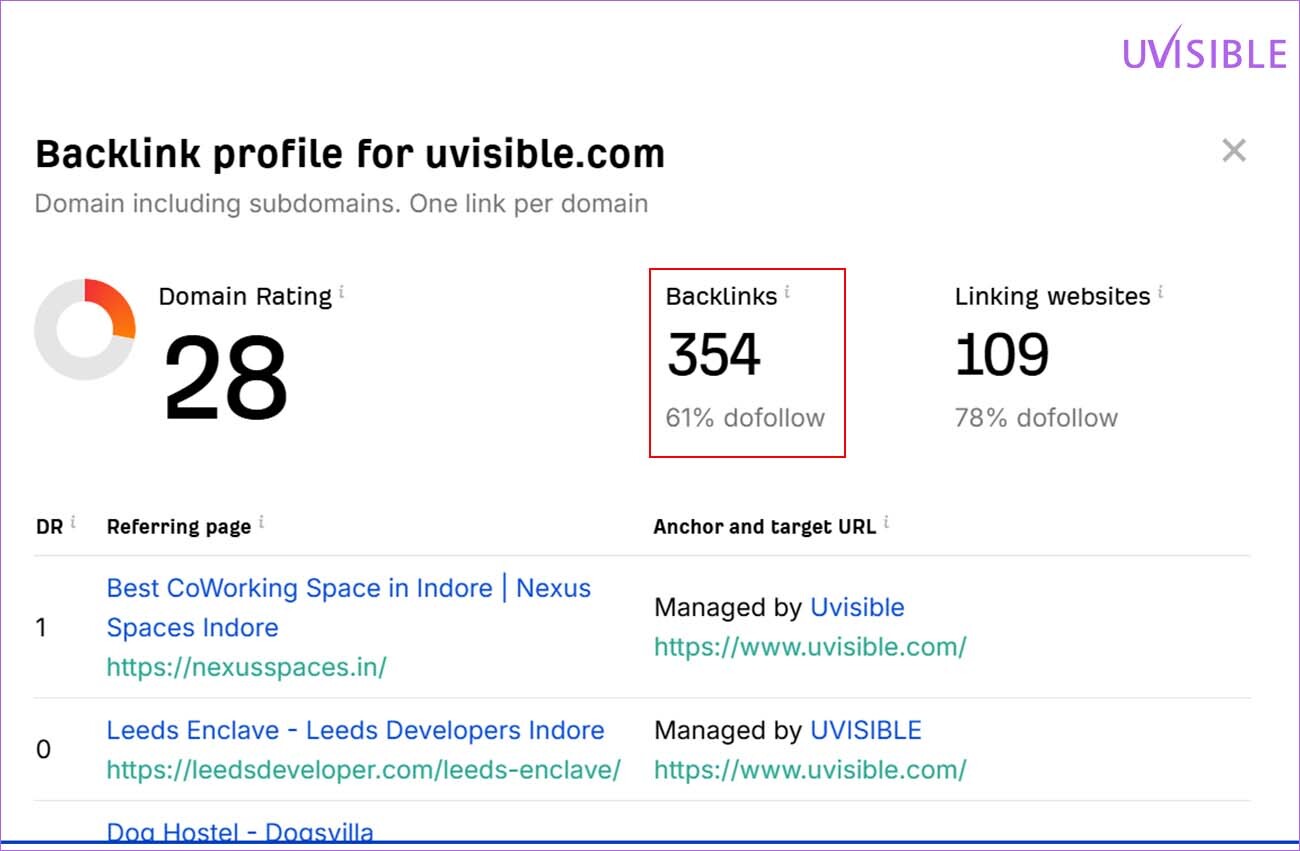
One of the most crucial KPIs is backlinks, also known as inbound links. These are links from other websites that lead to your site.
It indicates to the search engine that your website has authority and reputation. The better the quality of backlinks, the higher the chances of high SERP ranks.
Interesting Fact:
The quality of backlinks establishes a “vote of confidence” for your site.
Links from reputable sites provide higher trustworthiness to search engines.
According to research, 91% of websites fail to get organic traffic on Google because they don’t have quality backlinks.
However, getting backlinks from quality websites is challenging.
You can outsource SEO services from a reputed digital marketing firm, as they have reached authoritative websites and can ensure quality backlinks through content marketing, outreach, and digital PR.
7. Click-Through Rate (CTR)
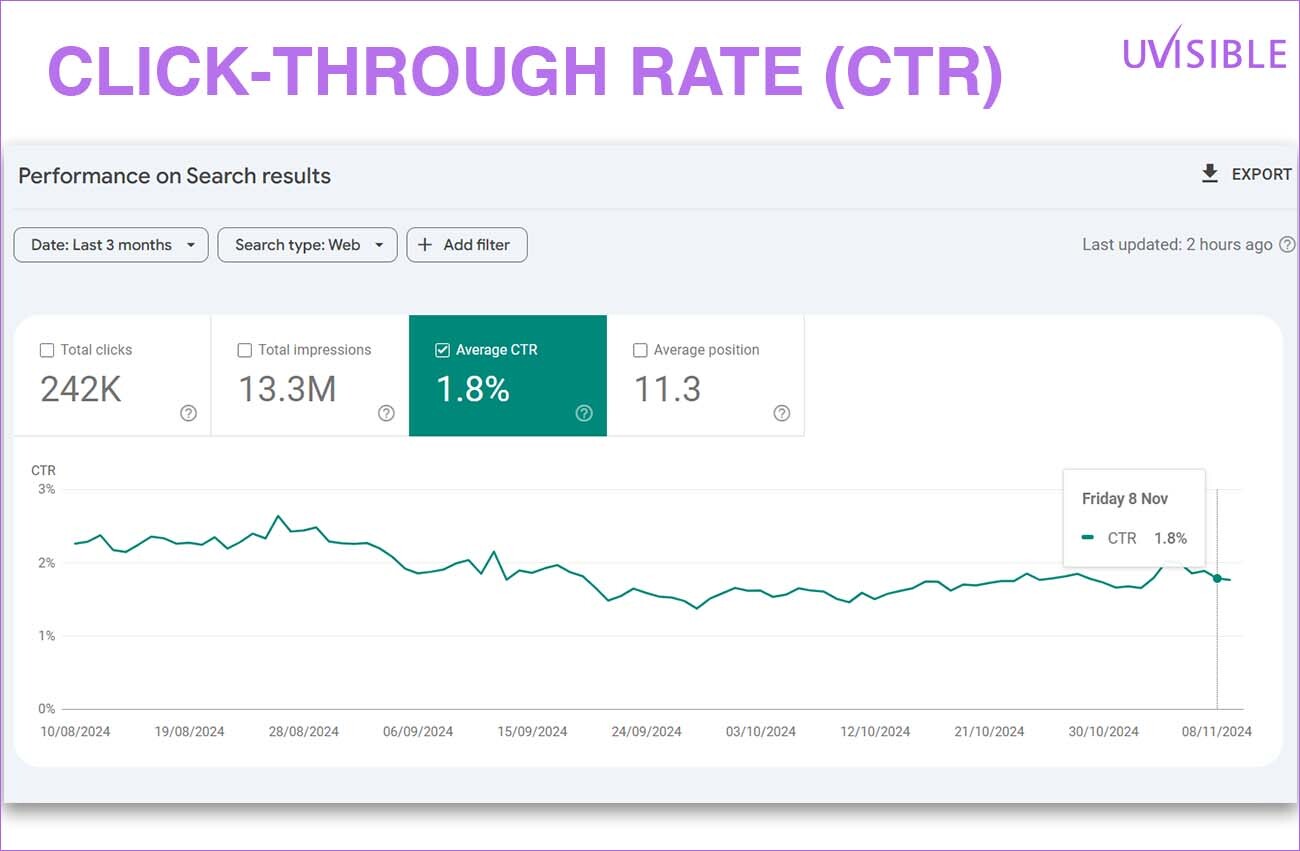
CTR indicates the percentage of visitors who clicked on your web link after it appeared on SERPs.
The higher the CTR, the more your title tags, meta descriptions, and overall SEO strategy perform well and attract users.
Interesting Fact:
Statistics suggest that the first position on Google has an average CTR of 31.7%, whereas the 24.7% CTR is for the second position.
If you find it difficult to achieve a high CTR, you can outsource to an SEO agency to optimize meta tags and improve CTR for your website.
This will lead to better reach and traffic on search engines.
8. Local SEO Metrics
Businesses that operate locally must track local SEO metrics, including local search rankings, Google My Business (GMB) performance, and citation accuracy.
This KPI is essential because it helps your business appear on location-based searches, driving foot traffic and phone calls from nearby customers.
Interesting Fact:
According to an analysis, 46% of all Google searches are local, meaning people are searching for local businesses.
Around 78% of mobile local searches lead to store visits and offline purchases.
9. Domain Authority (DA)
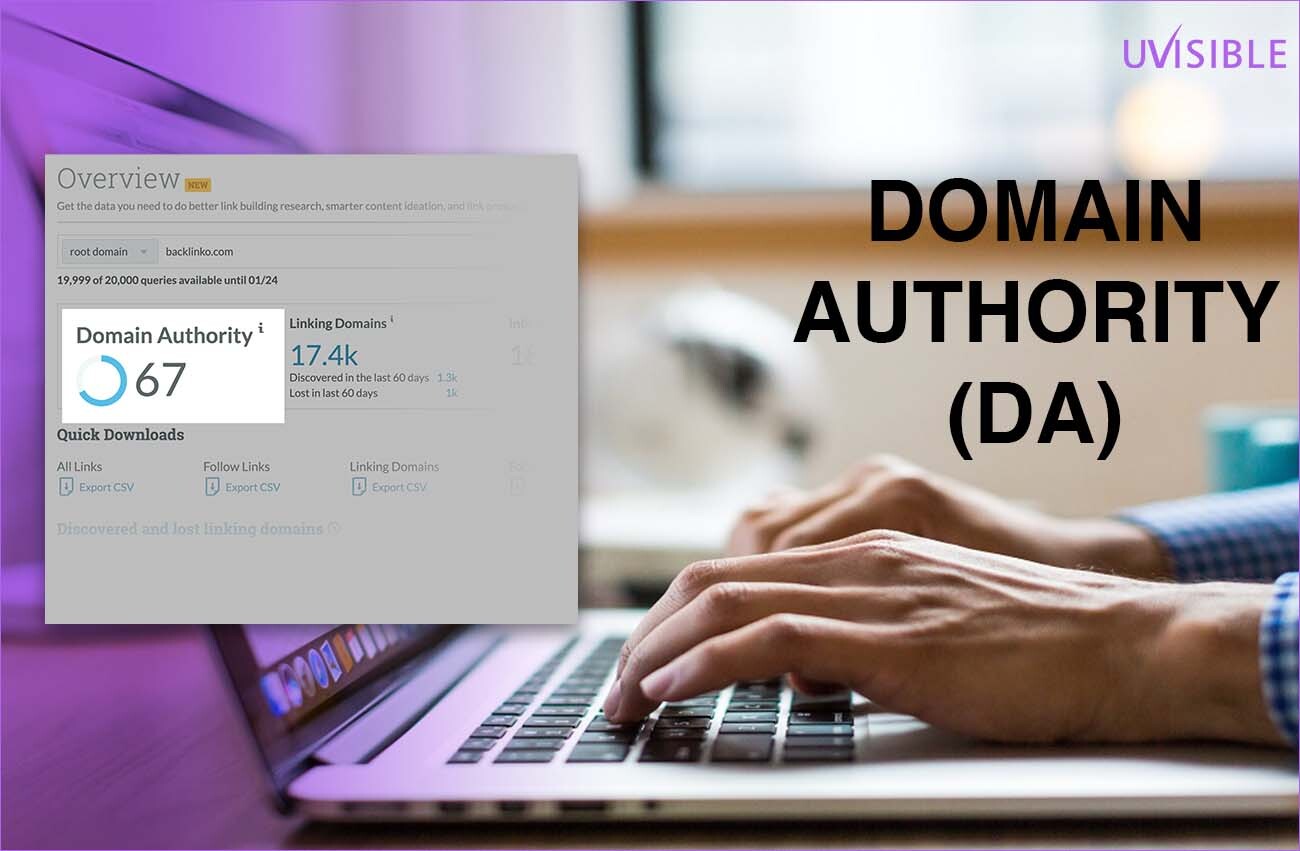
Domain authority (DA) is a metric that produces your website’s ranking on search engines.
DA can help you track your site’s authority and credibility.
Interesting Fact:
The higher the DA score, the better the organic traffic.
According to Moz, DA ranges between 70 and 80 often have higher traffic than sites with fewer DA scores.
10. Mobile Usability

It is essential to have a mobile-friendly site, as more than half of the web’s traffic globally comes from mobile devices.
Hence, mobile usability has become the most important KPI.
Google has a mobile-first version, on which your site is primarily created considering mobile features.
Ensure that you create a mobile-friendly site for SEO success.
Google says that websites that take more than five seconds to load on mobile are negatively impacted.
Interesting Fact:
Statista’s analysis suggests that 58.99% of all global web traffic came from mobile devices in Q1 of 2023.
Final Words:
To conclude the blog, it is understandable that KPIs are essential to track and optimize as they suggest improvements for SEO performance and drive better business outcomes.
Whether SEO is managed in-house or through an organization, in-house or outsourced, it is essential to track these indicators to make informed decisions for the business’s success.
By incorporating KPI results with your existing SEO strategy, you can ensure that your website is positioned to succeed in the ever-competitive world of search engines.
About us and this blog
We are a digital marketing company with a focus on helping our customers achieve great results across several key areas.
Request a free quote
We offer professional SEO services that help websites increase their organic search score drastically in order to compete for the highest rankings even when it comes to highly competitive keywords.
Subscribe to our newsletter!
More from our blog
See all postsRecent Posts
- 7 Best Ecommerce SEO Tools to Boost Your Rankings April 4, 2025
- Turn Clicks Into Cash: 6 Web Design Hacks to Boost Sales! April 2, 2025
- High-Ticket Affiliate Marketing: Earn Bigger Commissions with Fewer Sales! March 31, 2025

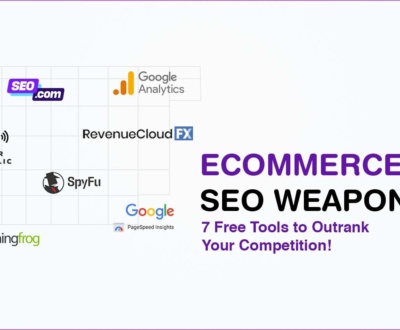





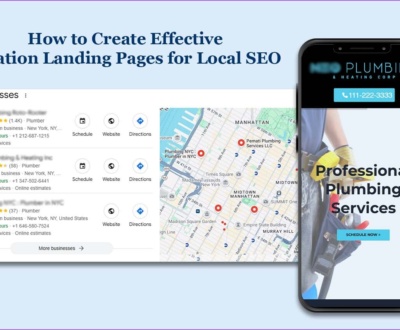

Pingback: AI is Taking Over SEO – Adapt Now or Disappear from Search! - Uvisible
Pingback: How to Learn SEO and Crack It - Uvisible
Pingback: SEO for Startups: Choosing the Right Agency
Pingback: Roofing SEO Guide: Strategies to Rank Your Roofing Company on Google’s First Page
Pingback: Master Mobile Optimization: Best Practices to Boost Your Website's Performance